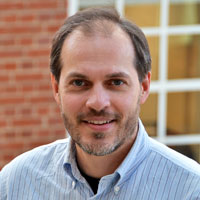Researchers call for collaboration to better understand how air pollution impacts health
March 30, 2016
The need to understand how air pollution affects health is greater than ever, reports a new article led by Jason West, PhD, associate professor of environmental sciences and engineering at the UNC Gillings School of Global Public Health.
Air pollution is among the most important risk factors for health globally, and is responsible for millions of deaths each year. Scientific understanding of the widespread effects of air pollution on health has grown within recent decades, but there is more work to be done. While past policy efforts have succeeded in reducing particulate matter and trace gases in North America and Europe, adverse health effects are still found at even these lower levels of air pollution.
West and a cohort of international expert co-authors explore the need for further research in the full article, titled “What we breathe impacts our health: improving understanding of the link between air pollution and health,” published online March 24 by Environmental Science & Technology.
The paper is one product of a workshop involving leading researchers from two communities – air pollution science and air pollution health effects science – who traveled from multiple countries in North America, Europe and Asia to discuss new opportunities to improve the global understanding of air pollution’s health effects.
“The impact of air pollution on health is still underappreciated,” says West. “Air pollution and its health impacts change as economic and energy development occurs around the world, and as new pollution regulations are implemented. It will continue to evolve over the next century in ways that are interrelated with climate change.”
Air pollution science now offers new possibilities for research through improved tools like measurement methods that detect more chemical components, cheap sensors that can be widely deployed, satellites that view Earth from space and models that represent relationships between pollution sources and receptors.
According to the paper’s authors, future policy decisions will benefit from the improved understanding such research can offer, especially when it comes to the interactions and health effects of different chemical species and source categories. Achieving this increased understanding will require air pollution scientists and engineers to work increasingly closely with health scientists.
“In this paper, we make a case for the need for two communities of scientists – air pollution scientists and air pollution health effects scientists – to work together more effectively,” West explains. “By better understanding the importance of different air pollutant sources for public health effects, we hope to inform better management decisions.”
Gillings School of Global Public Health contact: David Pesci, director of communications, (919) 962-2600 or dpesci@unc.edu

